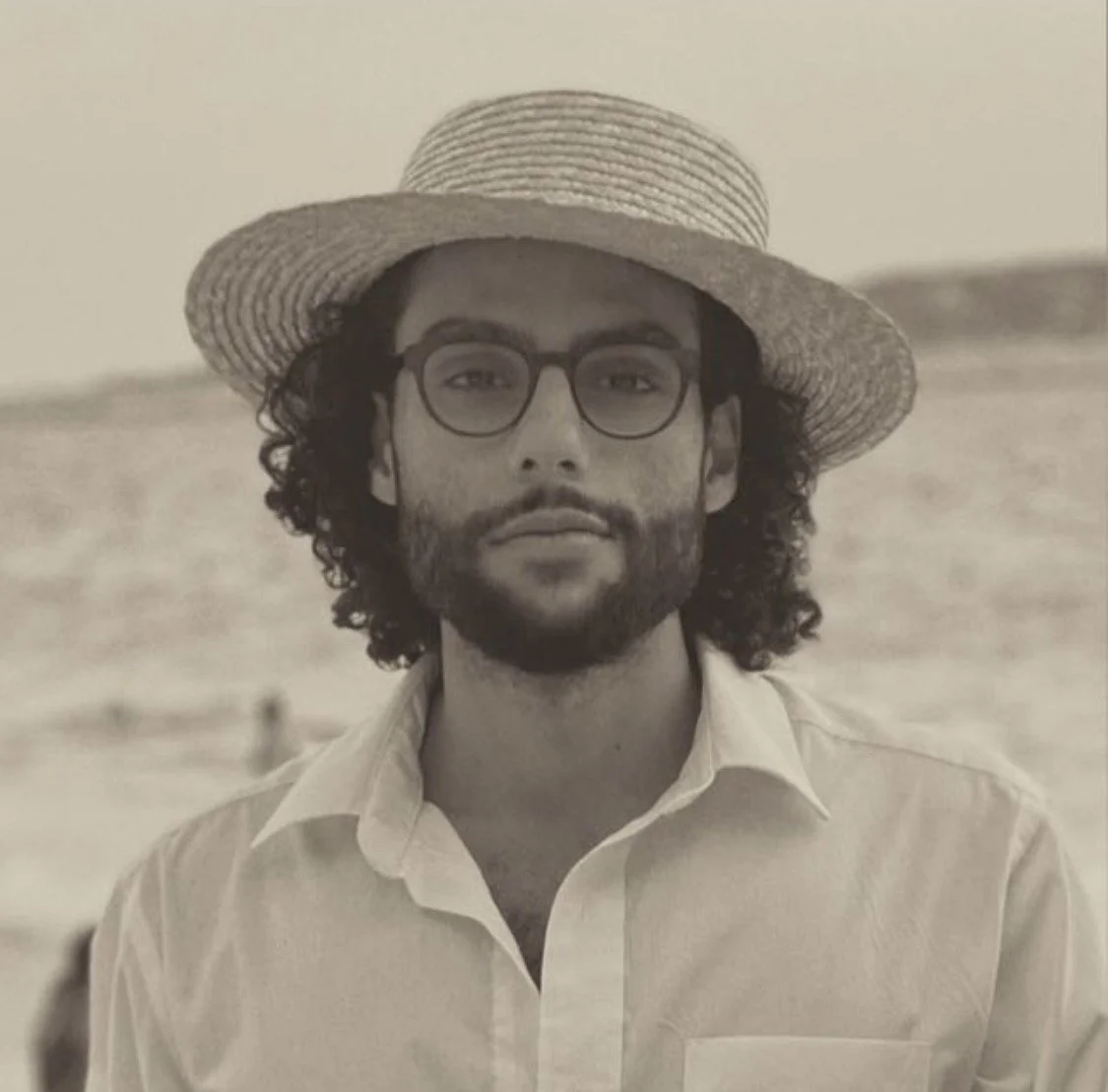between us
Overlooking its contemporary production, “Between Us” appears to unintentionally depict esoteric realities through classical and mystical paradigms. The song has always been performed in Arabic but for the first time, in this text, has been translated into English. The translator’s intent is to maintain the linguistic grandeur and clarity of the original Arabic in this interpretation while prioritizing a personal and relatable methodology that seeks to connect with a Western, non-Arabic speaking audience.
The song follows the rendition of Lebanese artist, Shireen AbuSaad, who uniquely captures and elucidates its journey through her story-telling performance. Between Us embarks on the emotional, and perhaps even psychological, graspings of hope as the song-speaker seeks to be reunited with their lover. Though this piece is primarily about love, the overall theme of an incessant persistence is not exclusive to it.
At its core, Between Us is telling of the manifestation of a single intention through the embodiment of hope, predicated on love, and further, on intentions of sincerity — all the while maintaining persistence through each stage. As we begin, the song-speaker recalls the promise of reuniting with their lover in the case of physical separation, which suddenly becomes the reality the onlookers are plunged into. The song-speaker journeys to returning with their lover but not without the burdens and pains of distance, sleepless nights, seeing the lovers’ reappearance, as well as their own mysteriously vague and unnamed visceral conflicts. We end with a strange self-effacing reality, manifested.
The circular, or spiroidal, nature of the song, beginning and ending with intentions, is more than likely an artistic expression of the framework of the soul’s potential, derived from classical Islamic sources. Such frameworks are exemplified in the works of polymath scholars like Abu Hamid Al-Ghazali, dubbed The Islamic Psychologist, Abu Bakr Al-Razi, Abu Zayd Al-Balkhi, and others. The likes of these scholars, and other spiritual masters from the Islamic intellectual tradition, have synthesized religion with what we now call psychology. This interdisciplinary success and transgenerational preservation bears the fruit of elucidating the journey of the soul through this world, identical to that in Between Us. This is apparent through metaphysical concepts and spiritual adages that are understood as axiomatic principles of spirituality such as: Overflowing Generosity (Sakha’ul-Nafs), Selflessness Through Effacement (Fana’), and “Beginnings Manifest The Ends”. This blueprint, and artistic expression through song, gives us meaning, history, hope, love, and also, a reason to be cheerful.
Translation, diacritical marks, and commentary, by Tariq Elsaid. Special thanks to Fanta Condé and translation mentor; Nancy Roberts for their edits and keen insights. All rights and ownerships of this work belong to Tariq Elsaid and may not be re-used without his written consent.
A return awaits us,
If ever we were far,
I’ll come back to you,
No matter the lands between us,
A return awaits us,
If ever we were far,
I’ll come back to you,
No matter the lands between us,
Till then I see you everywhere,
Till then I find you everywhere,
And we’ll come back, again and again,
I am raptured with yearning,
And I won’t let you go,
Come what may,
Your shadow appears before me,
I can’t take these days,
Nor can words brief my longings,
But when the stretch of night,
embeds my sleep,
You appear before me,
Wherever I look,
You appear before me,
Wherever I turn.
One day we’ll come back,
We have promises to keep,
Till then your absence,
Is filled with the presence of hope,
One day we’ll come back,
We have promises to keep,
Till then, in your absence,
Is the presence of hope,
And there you are,
Everywhere before me,
And there you are,
Wherever I turn,
And we’ll come back,
Again and again,
Raptured,
With yearning,
I won’t let you go,
Come what may,
As you appear, again!
I can’t take these days,
Nor can words brief my longings,
And when the stretch of night,
Embeds my sleep,
You appear before me,
Wherever I look,
Before me,
Wherever I am.
وَبَیْنا مَعَادْ
لَوْ إِحْنَا بَعَادْ
أَکِیدْ رَاجِعْ
وَ لَوْ بَیْنِي وَ بَیْنهُ بِلَادْ
وَبَیْنا مَعَادْ
لَوْ إِحْنَا بَعَادْ
أَکِیدْ رَاجِعْ
وَ لَوْ بَیْنِي وَ بَیْنهُ بِلَادْ
قَصَادَ عَیْنِي فِی کُلِّ مَکَانْ
قَصَادَ عَیْنِي فِی کُلِّ مَکَانْ
َو مِنْ تَانِي أَکِیدْ رَاجعِینْ
أَنَا دَایِب وَ کُللِي حَنِینْ
وَ لَا عُمْرِي أَبِیْعُ
لَوْ مِینْ
قَصَادَ عَیْنِي
وَ مِشْ قَادِرُ عَلَى الأَیَّامْ
وَ لَا یُوْصُف هَوَایا کَلَامْ
وَ طُول لَیْلِي
وَ لَمَّا بَنَامْ
قَصَادَ عَیْنِي
فِی کُلِّ مَکَانْ
قَصَادَ عَیْنِي
فِی کُلِّ مَکَانْ
فِی یَوْم هَنَعُود
دَه بَیْنَنَا وُعُودْ
وَ فِی غِیَابه
أَکِید لِسَّه الأَمَل مَوْجُودْ
فِی یَوْم هَنَعُود
دَه بَیْنَنَا وُعُودْ
وَ فِی غِیَابه
أَکِید لِسَّه الأَمَل مَوْجُودْ
قَصَادَ عَیْنِي
فِی کُلِّ مَکَانْ
قَصَادَ عَیْنِي
فِی کُلِّ مَکَانْ
َو مِنْ تَانِي
أَکِیدْ رَاجعِینْ
أَنَا دَایِب
وَ کُللِي حَنِینْ
وَ لَا عُمْرِي أَبِیْعُ
لَوْ مِینْ
قَصَادَ عَیْنِي
وَ مِشْ قَادِرُ عَلَى الأَیَّامْ
وَ لَا یُوْصُف هَوَایا کَلَامْ
وَ طُول لَیْلِي
وَ لَمَّا بَنَامْ
قَصَادَ عَیْنِي
فِی کُلِّ مَکَانْ
قَصَادَ عَیْنِي
.فِی کُلِّ مَکَانْ
BIO:
Tariq Elsaid is an aspiring translator of classical and contemporary Arabic works including poems, heritage songs, and odes. He also works as a poet, photographer, editor, content creator, graphic designer, and an editor by night. Tariq’s love for language and arts led him to, and was rekindled during, his studies at one of America’s most prestigious Arabic and Islamic Institutions in Chicago, DarulQasim College. There, he learned Classical Arabic for two years along with other Traditional Islamic Sciences. By day, Tariq is a Psychotherapist at a faith based clinic. His current project involves the attempt to codify the harmony between the disciplines of language and psychotherapy to deliver an intervention called Poetic Psychotherapy. “Poetry and psychotherapy have identical aims” he says, “Both seek to guide towards Truth”.
https://www.youtube.com/watch?v=MgfAkAhkauw&list=RDEM08wD_iqqrUNzLxUK0nkajg&index=3
Tariq Elsaid

